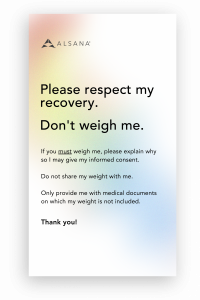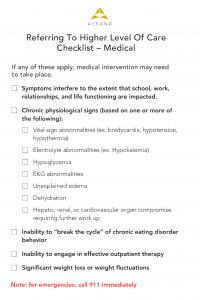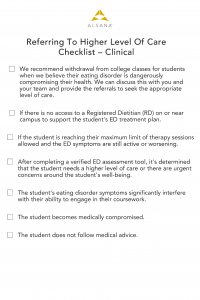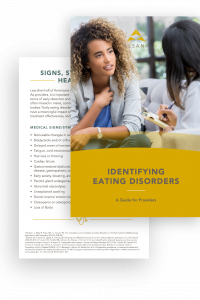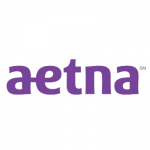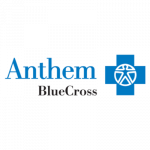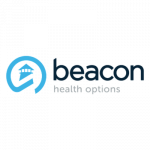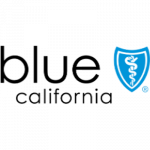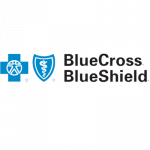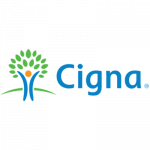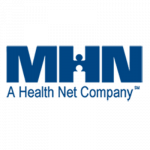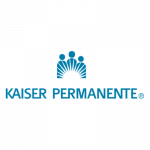College and Eating Disorders
Resources for Recovery
Eating Disorders Among College Students
Support and resources for college students navigating the complex landscape of eating disorders are crucial factors in recovery. At Alsana, we understand the significant prevalence of this challenge among college students and young professionals of all genders. Stressors of academics, social adjustments, and underlying mental health conditions can significantly impact the development of these disorders. Alsana is committed to providing resources designed to aid students in seeking proper treatment, fostering a supportive network, and meeting individuals where they are, when they need compassion.
Page Contents
Jump to section:
- “Do I have an eating disorder?”
- Eating Disorder Signs and Symptoms
- College ED Triggers
- Types of Eating Disorders and Related Issues
- Common Co-Occurring Mental Health Conditions
- College ED Statistics
- Virtual Treatment
- Resources For Individuals Struggling With Eating Disorders
- Resources for School Administrators
- Insurance

"Do I have an eating disorder?"
Eating disorders impact people of all genders and body types. If you or a loved one are struggling, and your relationship with food is affecting your physical and emotional well-being, Alsana’s eating disorder survey can help determine if treatment may be right for you. The survey is a FREE confidential eating disorder assessment.

Eating Disorder Signs and Symptoms
- Sudden interest in weight loss diets (e.g., keto) or specialized diets (e.g., no sugar)
- Excessive/compulsive exercise
- Binge eating
- Self-induced vomiting
- Laxative, diuretic, and/or diet pill abuse
- Food chewing and spitting
- Obsession with food cleanliness
- Feeling overweight despite weight loss or low body weight
- Impulsive or irregular eating habits
- Insulin misuse (in individuals with diabetes)
- Noticeable distress and feelings of disgust, depression, or guilt around food
College Eating Disorder Triggers and Contributing Factors
- Competitive academic environment
- Irregular eating schedule
- Disrupted routines
- Anxiety
- Depression
- Increased stress
- Limited food choice/transportation
- Pressure related to student athletics
- Diet Culture and related stigmas
- Co-occurring mental health challenges
- Missed appointments with care team
- Newfound independence
- Lack of community/support network
- Food insecurity
Types of Eating Disorders and Related Issues
Alsana provides compassion focused therapy for all types of eating disorders that helps adult clients of all genders achieve lasting recovery and whole health.
Types of Eating Disorders:
Related Issues:
- Compulsive Exercise
- Rumination Syndrome
- Orthorexia
- Drunkorexia
- Body Dissatisfaction
- Body Dysmorphic Disorder (BDD)
- Muscle Dysmorphia
Common Co-Occurring Mental Health Conditions
Individuals challenged with eating disorders often face the complexities of co-occurring mental health conditions. The interconnected relationship between eating disorders and various mental health issues is profound, creating a challenging landscape for those affected.
Whether it’s depression, anxiety, obsessive-compulsive disorder, or other related conditions, the overlap and interaction between these mental health challenges can significantly impact an individual’s overall well-being. At Alsana we believe that understanding these co-occurring conditions, and meeting individuals where they are is crucial in providing comprehensive care and effective treatment.
Anxiety: A persistent and overwhelming feeling of worry, fear, or unease that can interfere with daily life.
Depression: A pervasive feeling of sadness, hopelessness, and a loss of interest in activities previously enjoyed.
PTSD (Post-Traumatic Stress Disorder): A mental health condition triggered by experiencing or witnessing a traumatic event, leading to flashbacks, nightmares, and severe anxiety.
OCD (Obsessive-Compulsive Disorder): Characterized by intrusive thoughts and repetitive behaviors, often performed in an attempt to reduce anxiety or prevent perceived harm.
Trauma: Psychological distress caused by a distressing or disturbing event that can impact an individual’s emotional and mental well-being.
Borderline Personality Disorder: A condition marked by unstable moods, behavior, and relationships, often leading to intense emotions and impulsive actions.
College Eating Disorder Statistics
- Prevalence: It is estimated that 10-20% of women and 4-10% of men in college may have an eating disorder. According to the National Eating Disorders Association (NEDA) 2022.
- Anorexia: Anorexia nervosa is reported to affect about 1-4% of college-aged women.
- Bulimia: Bulimia nervosa is found to be slightly more common, with a prevalence of around 3-5% among college women.
- Binge Eating Disorder: BED is also a concern, with an estimated 2-5% of college students experiencing this condition.


Flexible, Online Eating Disorder Treatment (PHP/IOP)
Virtual treatment can often provide the convenience and flexibility required by college students and young professionals who have limitations in their schedules.
Our Virtual PHP/IOP programs, which serve clients across the U.S., provide whole-person, evidence-based care and help clients hone their eating disorder recovery skills with peer support and minimal disruption to their daily lives.

Resources For Individuals Struggling With Eating Disorders
In recovery, If you understand your triggers, and know that it’s best not to know your weight, then you can communicate your needs at your next medical appointment.
Self-advocacy requires assertive communication, which makes it possible to:
- Communicate triggers
- Set boundaries
- Stand up for yourself
- Ask for help
- Build and maintain healthy relationships
- Feel engaged in recovery
Screenshot or print a “Don’t Weigh Me” card to advocate for yourself at your next medical appointment.
Alsana’s Free Online Eating Disorder Support Group
Alsana support groups are offered at no cost to support adults of all genders in their eating disorder recovery. This group is pro-recovery and its goals are to help people suffering from eating disorders know they’re not alone, reduce shame, brainstorm solutions to common challenges, relate to one another, and inspire hope.
Eating Disorder Resource Center Support Groups
EDRC facilitates free and confidential support groups. Their Body Image and Eating Disorder support group will help you build confidence, get control of your body image and conquer the fear of eating. Their family and friends group is specifically tailored to the needs of family and friends supporting a loved one.
Meal support plays a crucial role in eating disorder recovery by providing a foundation for physical and emotional healing. Having a supportive environment during meals helps individuals confront and overcome fears associated with eating, fosters a sense of normalcy around food, and offers emotional reassurance, reducing feelings of isolation and anxiety that may accompany mealtime. Project Heal offers free, weekly, virtual meal support as a safe space for those in outpatient eating disorder treatment.
These organizations are good places to look for treatment options, programs, ED community events, education, and support groups.
Leave of Absence guidelines – curated by Alsana’s Transitional Recovery Coach.
A leave of absence is a period of time when a student is not enrolled in classes but typically intends to reenroll. Here are some helpful tips for navigating a leave of absence for eating disorder treatment.
- Connect with your academic advisor and set up meeting. You don’t have to share anything personal if you don’t want- just explore what the LOA looks like.
- Generate questions to ask your advisor.
- Discuss policies and procedures your school has for students taking a LOA before, during, and after.
- What are the accommodations available if able to stay at the school and do virtual programming or returning back to school?
- Ask about any of the financial aid requirements around a LOA.
- Put a plan in place and involve those on campus there to support you such as the counseling center or student wellness.
- Focus on your recovery- that is priority.
- Setting up the meeting is key – having a conversation and building a relationship with an advocate there will be the most effective step. The resource center is usually called “Student Accessibility Services,” “Disability Resource Center,” “Accessibility Resource Center”, etc.
- It can be helpful to pose the following thought experiment: “How would you navigate this if it were [any other serious medical condition]?” This can not only validate the seriousness of the eating disorder, but also spark an insightful conversation about what feels different about eating disorder treatment, and give us an opportunity to educate!
Resources For School Administrators
Referring To A Higher Level Of Care
Identifying Eating Disorders – Signs & Symptoms
Helping students to attain treatment at the appropriate level of care will help them to stay hopeful in the recovery process. Early detection and treatment also reduces the risk that a student will experience the life-threatening complications of eating disorders.
There are many different types of eating disorders, and symptoms can vary. You can find a detailed list of symptoms in this signs & symptoms provider guide to identifying eating disorders. This guide is a quick reference to the different eating disorder diagnoses, as well as the signs, symptoms, complications, and APA level of care guidelines for clients with eating disorders.
Alsana Blog
Alsana is a preferred in-network provider for all major insurance companies.
Submit the form below and a member of our team will be in touch with you shortly.
Alsana would like to be your eating recovery community.
Start the road to recovery with Alsana.

